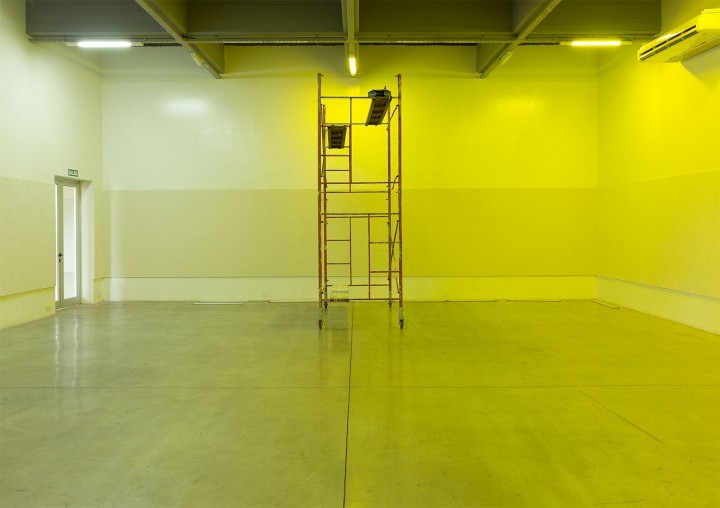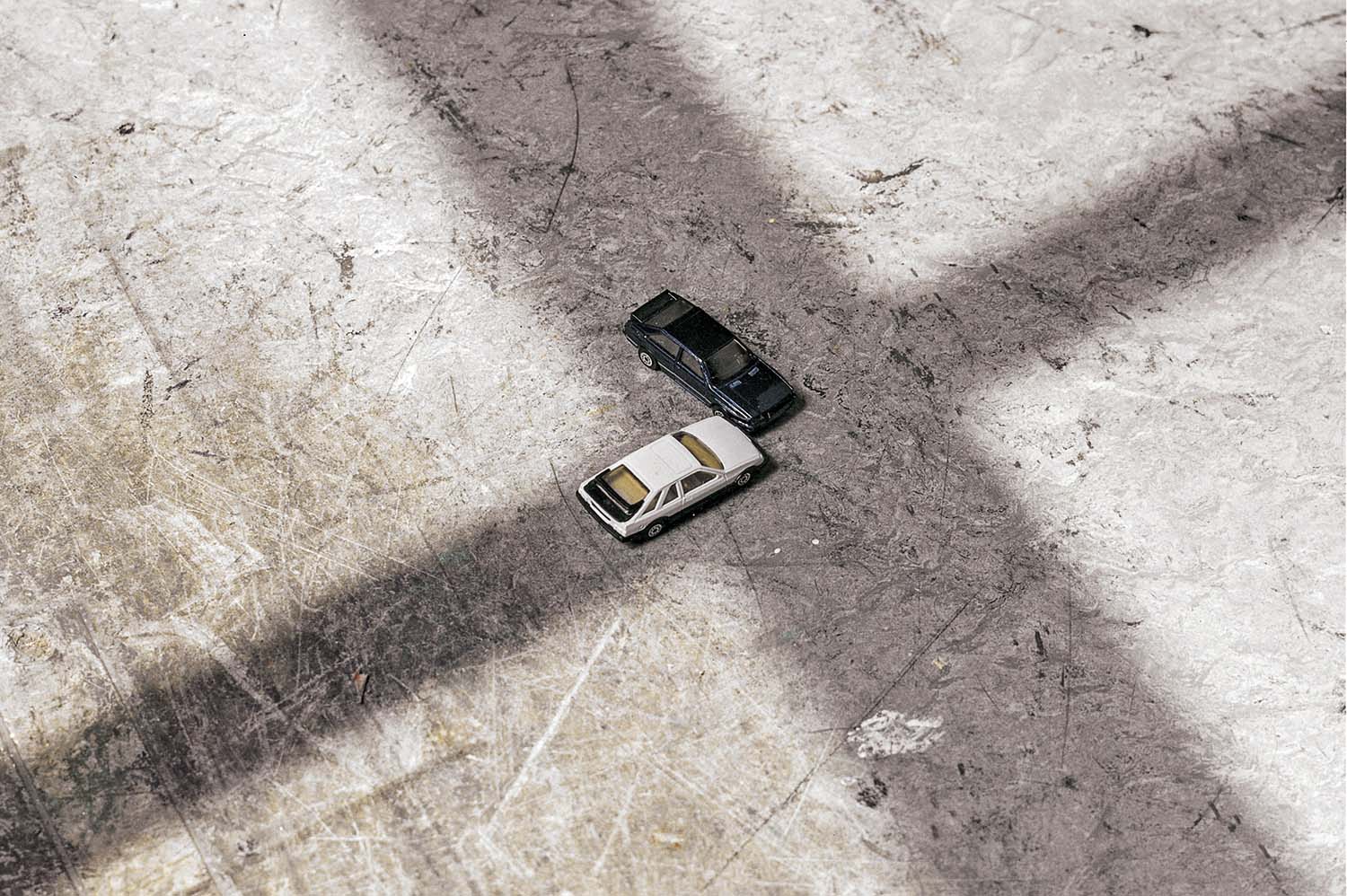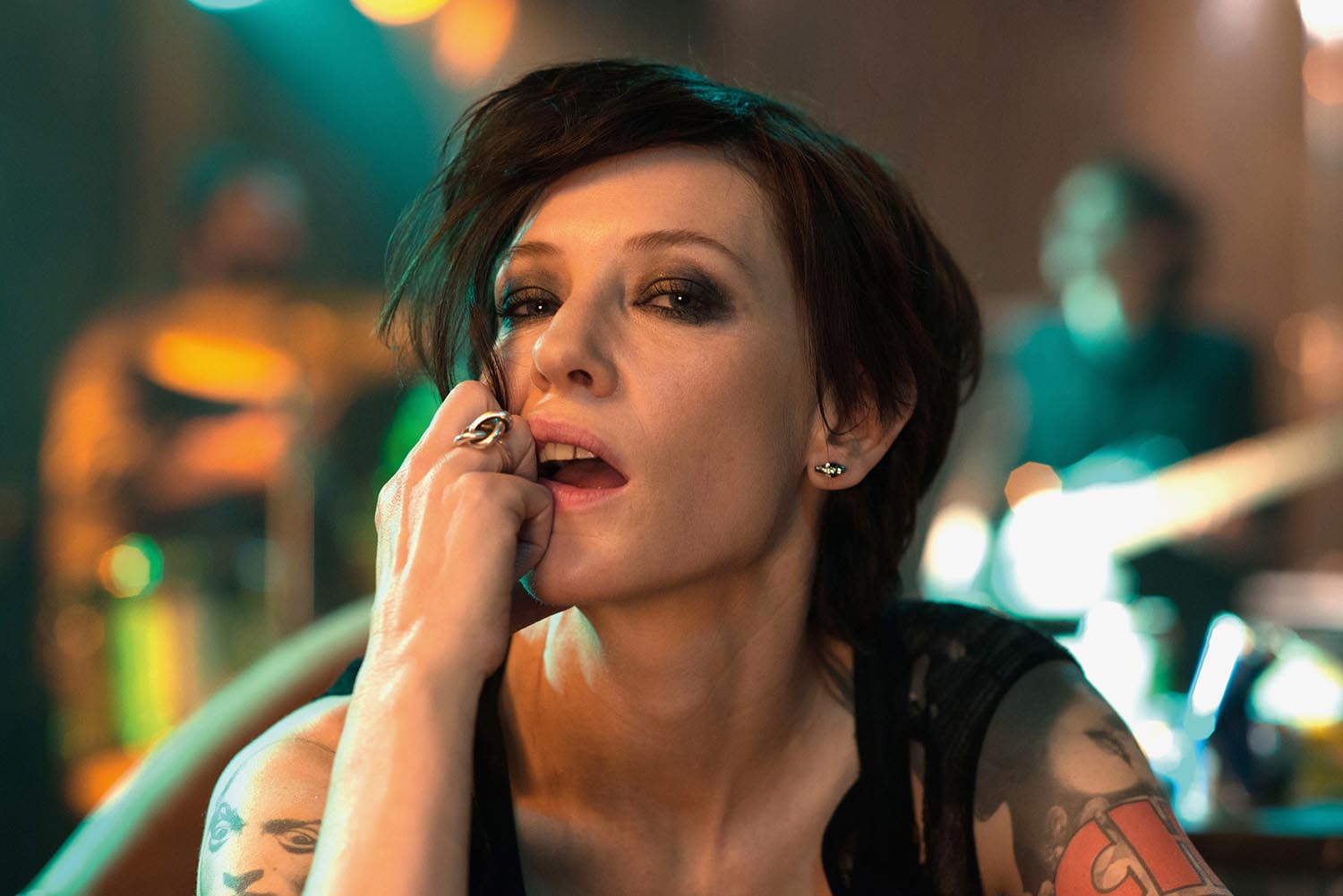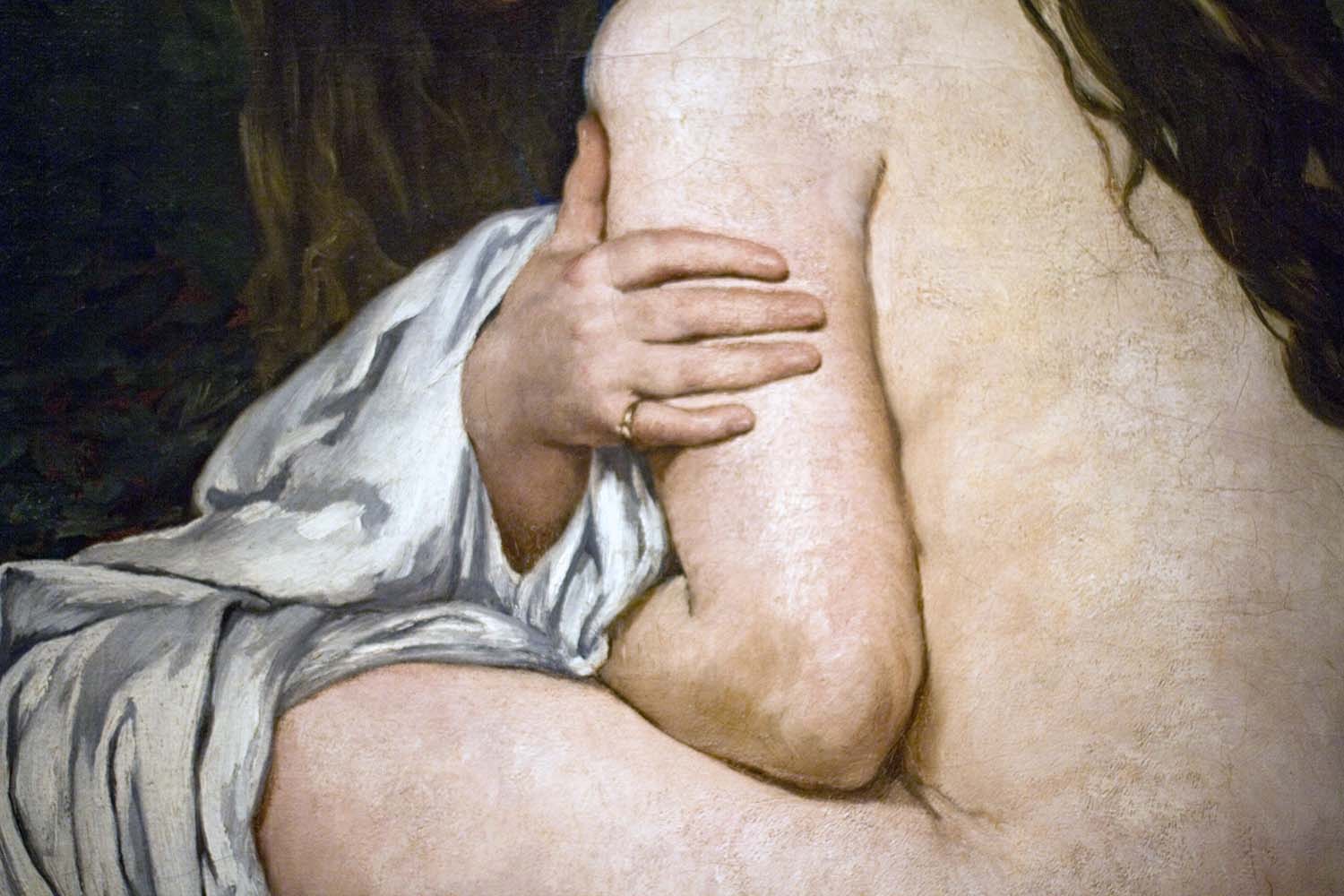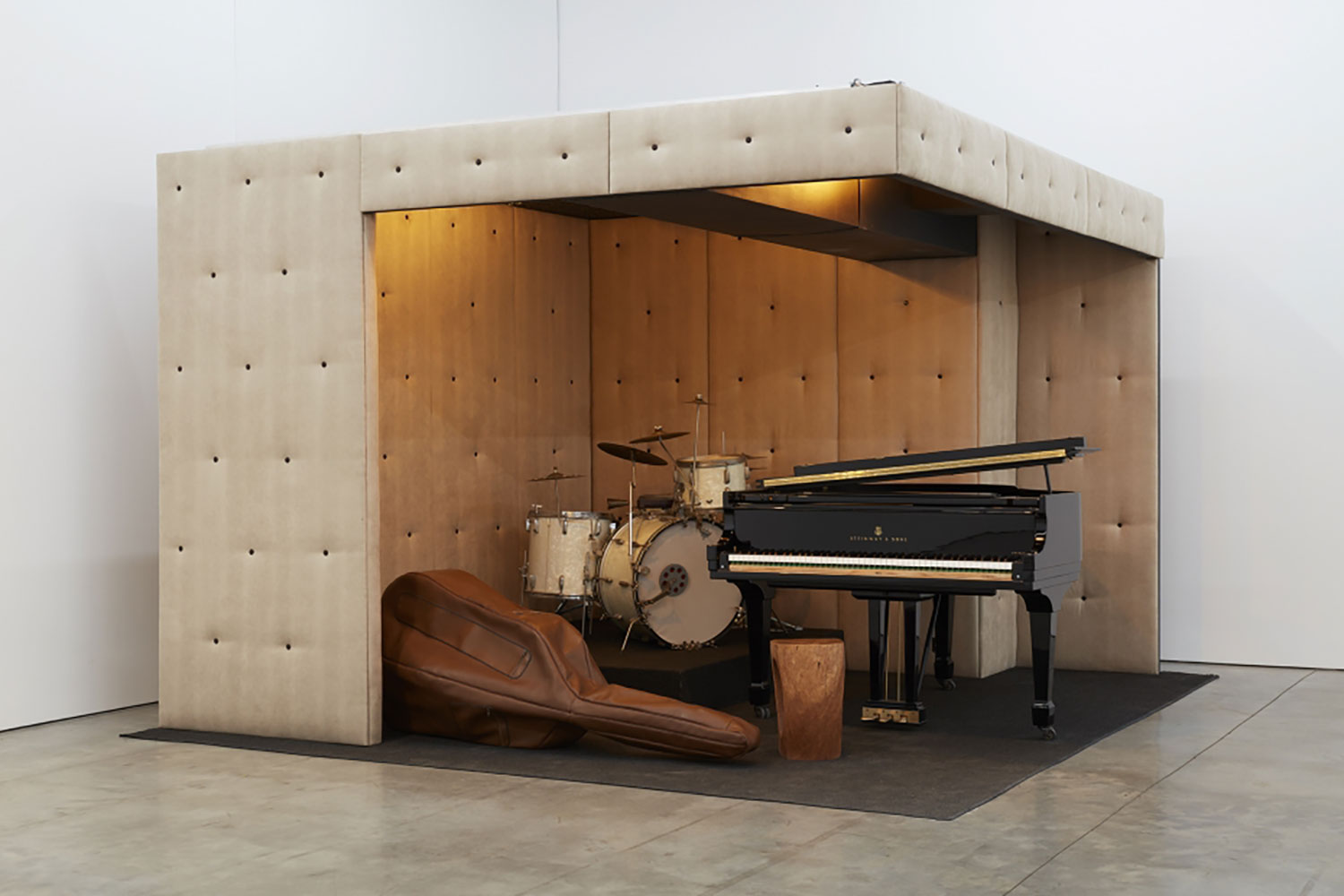As evidence of an ongoing conversation between the curator and the artist, Raimundas Malašauskas invited Jason Dodge to join him in conceiving a project for the art department of the Universidad Torcuato Di Tella in Buenos Aires. Within this university context, one might almost think of the show, titled “Tomorrow Night I Walked to a Dark Star,” as a classroom experiment.
Close to the exhibition space within the campus there’s a neuroscience lab featuring an environmental chamber separated from exterior electromagnetic fields; strict isolation protocols must be followed. Similarly, the show consists of a set of rules, a display etiquette not to be disrupted or interfered with. Three times a day, an assistant changes the lights — from white to amber and vice versa — mounted on a scaffold that is always present, only changing its position. An arcade machine with a dance platform greets the viewer at the entrance. The show also features a performance piece by Bruce Nauman — a hired actor walks the room as if the ceiling were five feet high, with the public standing outside — along with an arrangement of textured patterns on each wall and a phrase by poet Alfred Starr Hamilton, which gives the show its title and undergoes random permutations by means of an algorithm designed by Robert Pearson, with results displayed on a pile of sheets.
These elements alter endlessly by chance. The room has been tested, the exhibition space submitted to noise analysis. Beyond the need to display any actual content, everything is overdesigned and at the same time dissociated, and the result is akin to a master class in curatorial inventiveness — as if the wheel of exhibition making could be reinvented every time it is turned. One of the tenets of contemporary art — that is, the continual postponement of meaning — is thus rephrased in terms of interrogation techniques: art experienced in circumstances of sensory deprivation.

